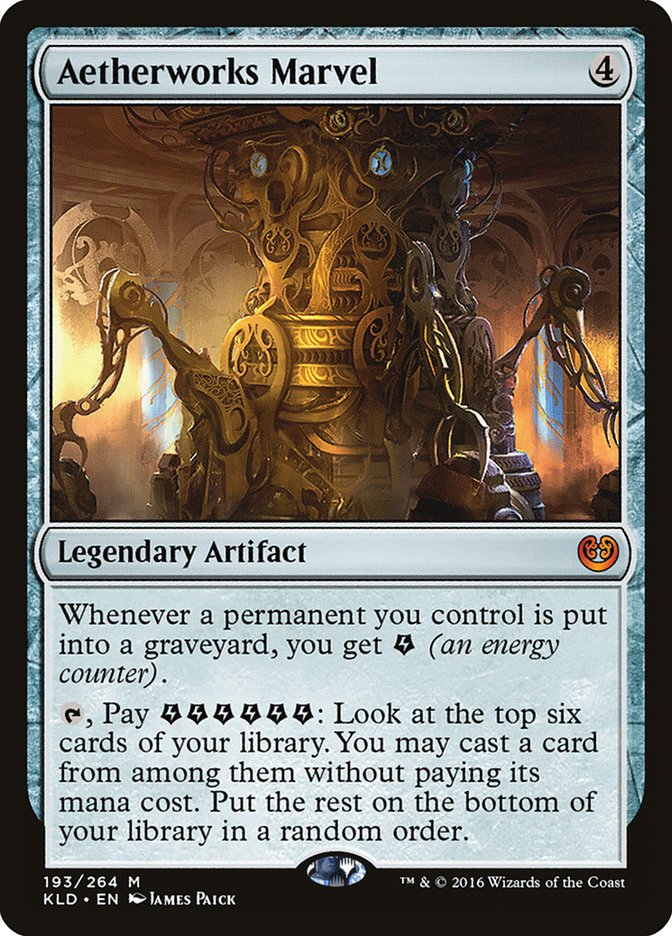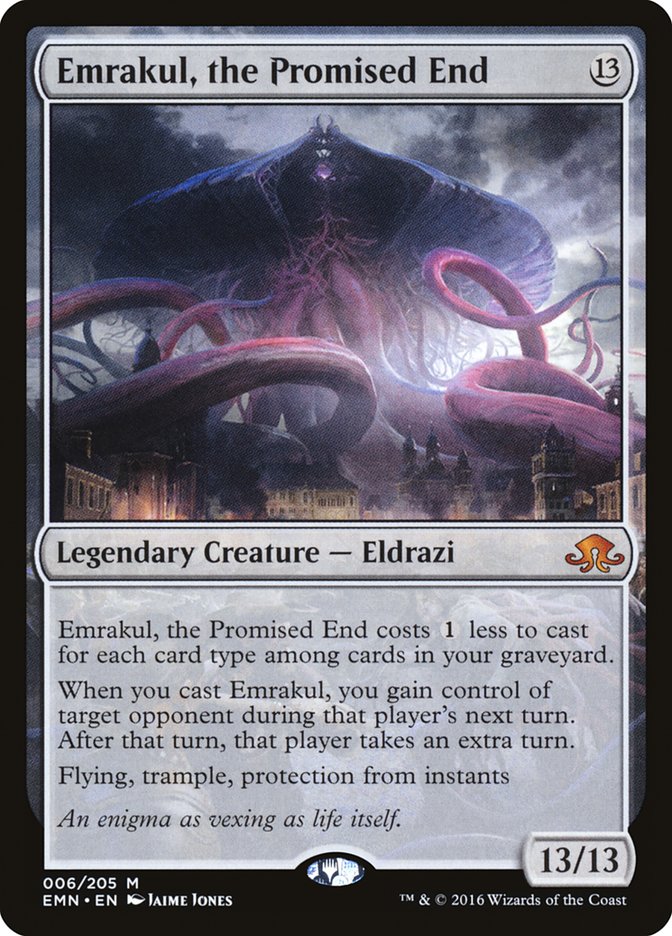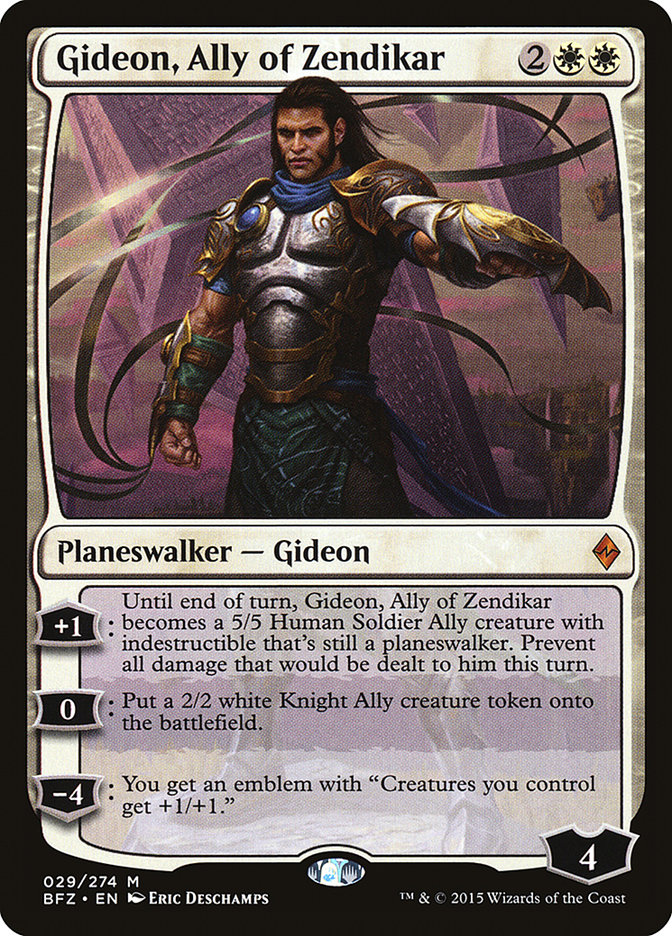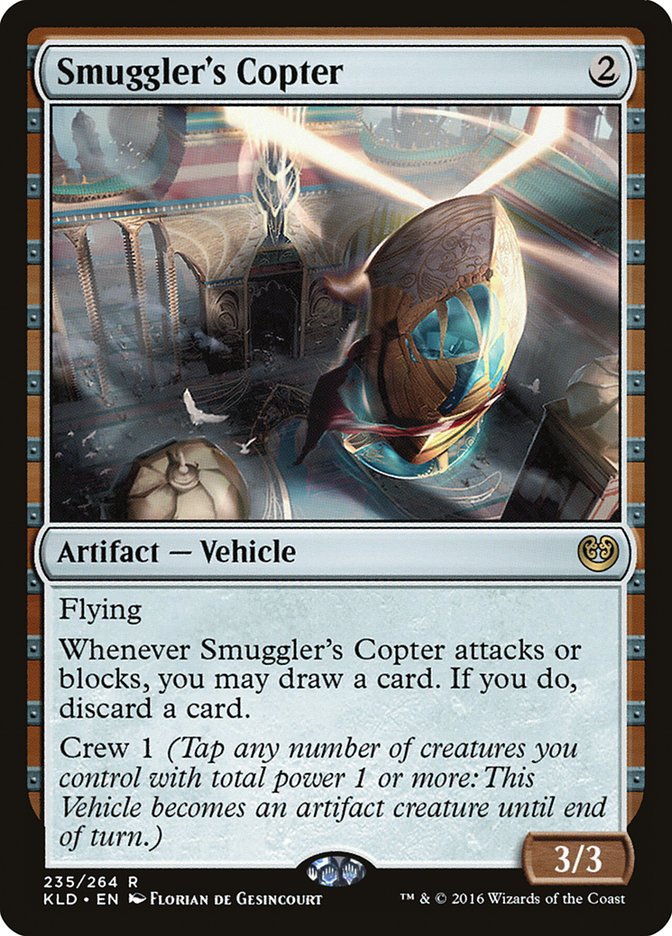Dear Nicholas (is it okay if I call you Nicholas?),
I hope all is well at the North Pole with Mrs. Claus, the elves, and the reindeer.
I look forward to your visit this year, even if cleaning the chimney is a huge pain. Wouldn’t it be easier if I just left the door unlocked?
Anyway, I understand this is a very busy time of year for you, but I’ve been extra good this year (I think) and the things on my list this year are important not only for me but for the entire Magic: The Gathering community.
You know, MTG, right? It’s the greatest game the Elves have ever made. I’m sure a ton of them play in their off time, so this is relevant to them, too. Magic is still an awesome game, but the last few months haven’t been so great. Kaladesh Draft was sweet, but Constructed is another story. Standard has been stagnant, dominated by three decks.
It had been only two decks, B/G Delirium and W/U Flash, and honestly, it might have been better before because the third deck is R/G Aetherworks, which is absolutely miserable.
Every game you’re crossing your fingers that your opponent will whiff on their Marvel activation and even if they do, they’ll probably reload within the next turn or two and go again. If you can’t end the game and end it in a hurry you are going to have to deal with a stream of really overly powerful threats.
Naughty. Not nice.
And that would be fine if Standard didn’t have the most powerful threat in the format’s history. Before Emrakul, the Aeons Torn was printed in Rise of the Eldrazi, the common wisdom was that Mindslaver was the most powerful single effect on a competitively playable card (please don’t bring up Door to Nothingness because of OmniDoor ThragFire). I guess Emrakul didn’t want to leave any doubt this time, so the new iteration, Emrakul, the Promised End, comes with an attached Mindslaver on a similarly ridiculous body. And instead of fifteen mana, it regularly costs seven or eight.
Seriously…who thought this was a good idea? That Elf needs to retire from toymaking immediately and become a dentist. And if costing so little wasn’t bad enough, we also have a card that lets you cast Emrakul, the Promised End as early as turn 4. Maybe these two cards could’ve existed separately, but together they are a nightmare, and with the rotation schedule reverting back to once yearly, it’s a nightmare we are not going to wake up from any time soon.
I know what you’re going to say: Aether Revolt is right around the corner (thanks for gifting us those early previews, by the way) and will almost assuredly move everything around a bit. Maybe there will be some premium graveyard hate so decks can break up delirium or enough tools to make a consistent, resilient aggressive deck that can get underneath these insanely powerful effects.
Honestly, I don’t care exactly what it is that turns Standard on its head; I just want some change. So the first thing on my list is some sweet, powerful new decks enabled by Aether Revolt. I’m pretty confident that you’ll deliver on this since you’ve done so consistently in the past. I can hold out until then.
Of course, I know that in order to make toys for everyone in the world you have to start really early, so the cards for Aether Revolt are already finalized. You already know what direction Standard is heading in, and I really hope that, if the format remains stagnant, you have the courage to accept your mistakes and interfere.
You’ll need to ban Emrakul, the Promised End.
Remember when people were underwhelmed by this? Ah, youth.
Like on the plane of Innistrad, Emrakul, the Promised End is looming over Standard, imparting its will on every game, even if neither deck contains a copy of it. Obviously it’s the card that elevates Aetherworks Marvel, since no other card provides a comparable payoff, not even Ulamog, the Ceaseless Hunger. The recent variants of the deck have proven to be quite resilient, more than capable of winning through normal means as opposed to a fast Aetherworks Marvel, but without the upside of an early Emrakul, the Promised End, the deck becomes much less oppressive.
But beyond its presence as a degenerate combo piece, Emrakul, the Promised End is a dangerous tool for the dominant midrange deck in the format: B/G Delirium. You see, B/G Delirium is the quintessential midrange deck. It’s further toward the control end of the spectrum because Ishkanah, Grafwidow encourages longer games and Traverse the Ulvenwald lets you cheat on lands so you rarely flood.
But even the biggest midrange decks aren’t supposed to have such incredible inevitability. Any time an aggressive deck tries to sideboard into a more resilient package with planeswalkers and other sources of card advantage, they leave themselves vulnerable to the omnipresent tentacle monster, but if they try to go low, they are going to be brick-walled by Ishkanah, Grafwidow. It’s a near-impossible balance to achieve, even with threats as powerful as Smuggler’s Copter and Gideon, Ally of Zendikar.
“We’re trying.”
And control decks are in a bind too. When you’re playing card draw and counterspells, you want to know that, as long as you stay alive, you’ll eventually be able to win the game. You want inevitability. But Emrakul, the Promised End flips the script. Discard spells can clear away potential Summary Dismissals so they are guaranteed to get the Mindslaver trigger, which can decimate you from nearly any position. Control decks are forced to be the aggressor, trading early with counterspells before refueling with Glimmer of Genius and turning the corner with Torrential Gearhulk.
But by their nature, control decks don’t have the threat density to execute this plan consistently. Torrential Gearhulk is a great tool for this specific job, but it can only do so much, and if you’re forced to defend it from removal with counterspells, an important threat like Ob Nixilis Reignited or Ishkanah, Grafwidow might slip through the cracks.
I can’t be sure that banning Emrakul, the Promised End would solve every problem. In fact, it might make W/U Flash too strong as its two major competitors are crippled. But that problem seems muchmoresolvable than the current one. No one likes to see cards banned in any format, but if it comes to that in February or March, I hope you have a belated present for all of us.
The Polar Opposite
In the meantime, it would make sense for players who are down about Standard to turn to Modern for some relief. After all, Modern is almost the exact opposite of Standard. There is a huge variety of decks to choose from. Seriously, the list is endless. If you like to play fair with plenty of disruption, you have Grixis Delver, Jund and Abzan. If you want to get aggressive, you can go the swarming route with Affinity or take the heavy hitters approach with Bant Eldrazi.
If you like combo decks, there are a million options, and if you want your opponents to hate you, there’s G/W Hexproof. Modern has something for everyone and you can play ten rounds of it without running into the same matchup twice, so knowing your deck intimately and knowing the matchups is more important than being slightly better for that weekend’s metagame.
And yet I continue to hear frequent criticism of the format. Some people are just impossible to please, I guess. I bet you get that all the time, though. They don’t like Standard because it’s dominated by a few decks, but they hate Modern too, because even though it’s filled with tons of decks, they don’t like any of them.
The reality is these players want to have a top deck that has a significant edge, and that just isn’t the case with Modern because of its diversity. All the combo decks are vulnerable to specific hate, so you have to be prepared to play through it or play the deck that the metagame is unprepared to answer. Fair decks don’t have this issue, but it’s impossible for them to prepare for every unfair deck, so you’re always rolling the dice on getting the matchups you prepared for.
You might think that the answer is to print cards to help out the fair decks, but having a deck like Jund or Grixis be too flexible could permanently harm the diversity that has become Modern’s hallmark. The argument in support of this notion was put forth by Sam Black in his article Metagaming, so check it out if you get a chance to get off your feet and sit by the fire with a warm cup of cocoa.
Having a flexible, fair deck be too powerful may at first act as a check on the various combo decks of the format, but if it’s too strong, there is no check in the fair deck, which ultimately hurts the format. Bloodbraid Elf, Deathrite Shaman, Birthing Pod, and Splinter Twin were all banned to prevent such decks from making Modern stale. As much as the high-level competitive players might complain about Modern being high-variance, they fail to realize that that’s a feature, not a bug.
Magic is a great game and it reaches a large enough audience that not every format can be catered to competitive play. All the other boys and girls in the world deserve to have a game they enjoy too, so some compromises must be made.
That’s not to say that fair decks shouldn’t be viable in Modern or you shouldn’t ban unfair decks that are too powerful, oppressive, or otherwise unfun; you absolutely should. I just want to let you know that I support you in creating a format that is so popular, thus opening a wide audience for competitive players.
The only thing I’d ask of you then is that you keep up the good work. You’ve given us a great game with a bunch of very different ways of playing that stress different skill sets so that everyone can find something they enjoy.
Oh, and I want a rocket car, a death ray, and a pony. Thanks, Santa!
Sincerely,
Ross “Hunneds” Merriam
P.S. What kind of cookies are your favorite? I think it’s chocolate chip, but my annoying sister insists you prefer sugar cookies. She’s crazy, right? And please don’t say it’s oatmeal raisin; 2016 has been hard enough and I’m not sure I can handle that kind of shock right now.








